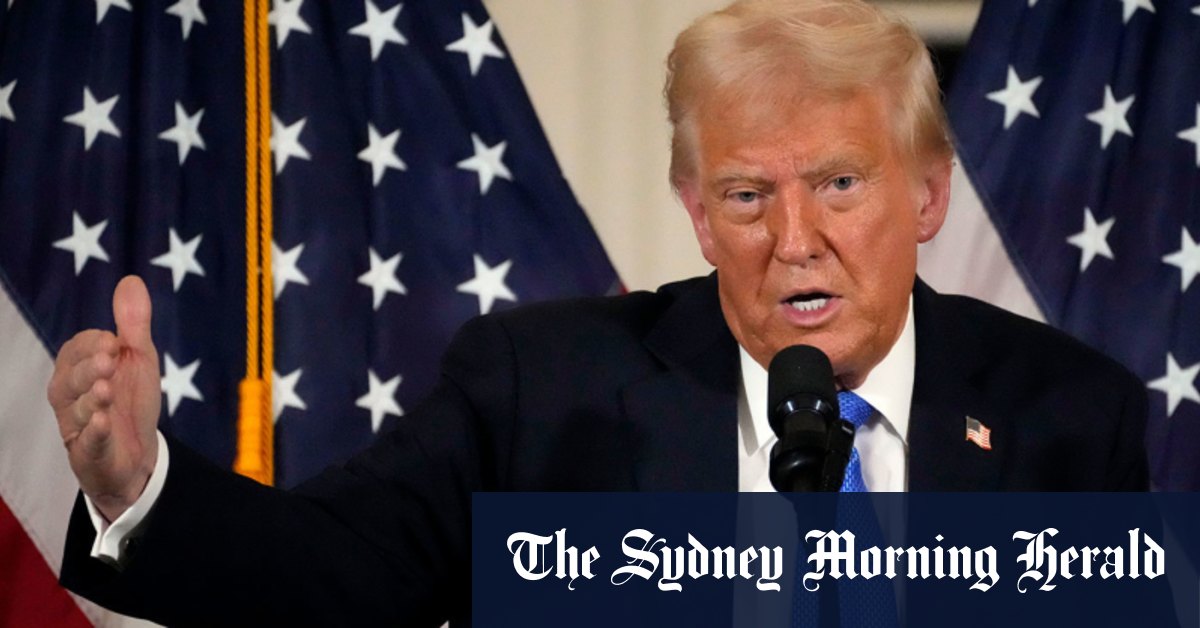Australia
Albanese’s considered response to Trump is not a sign of weakness

Introduction: The Trump Effect and Leadership in Turbulent Times
The recent commentary on Donald Trump’s influence on global politics and leadership has sparked a lively debate among observers, particularly in the context of Australian politics. Jacqueline Maley’s article, “It’s Trump’s world now, we are all just living in it … and the PM can’t ignore it,” has resonated with many, as it highlights the challenges leaders face in navigating the unpredictable landscape created by Trump’s presidency. While Maley’s analysis is thoughtful, some readers disagree with her assertion that Prime Minister Anthony Albanese appeared weak for not engaging with Trump’s latest controversial announcement. Instead, many see Albanese’s measured response as a sign of diplomatic maturity, focused on maintaining stability rather than chasing headlines. Meanwhile, opposition leader Peter Dutton’s alignment with Trump’s rhetoric has drawn criticism, with some labeling it as “irresponsible” and “scandalous,” given Trump’s fraught record on democracy and policy consistency.
This debate reflects a broader tension: how should leaders respond to figures like Trump, who thrive on controversy and disruption? Should they confront such figures head-on, risking further polarization, or maintain a dignified distance, even if it means being labeled as aloof or passive? These questions are not just relevant to U.S. politics but also resonate globally, as countries like Australia grapple with the implications of Trump’s influence on their own political landscapes.
Leadership in the Age of Trump: The Albanese Approach
Prime Minister Anthony Albanese’s response to Donald Trump’s provocative announcements has been characterized as considered and thoughtful. When asked to weigh in on Trump’s plan to remove Palestinians from Gaza and create a Middle Eastern Riviera—a proposal widely criticized as unrealistic and dangerous—Albanese chose not to engage. This decision was likely strategic, reflecting a commitment to diplomacy and avoiding unnecessary entanglement in inflammatory rhetoric. Albanese’s focus on his own policy agenda and Australia’s interests demonstrates a practical approach to leadership, prioritizing substance over sensationalism.
However, not everyone agrees with this approach. Some argue that failing to condemn Trump’s extreme ideas allows them to go unchallenged, potentially emboldening similar rhetoric elsewhere. Yet, Albanese’s strategy may also be seen as a form of resistance—by not giving oxygen to Trump’s provocations, he denies him the attention he craves. In a world where Trump thrives on being the center of attention, Albanese’s restraint could be a quiet act of defiance, one that emphasizes the importance of staying focused on meaningful progress rather than getting drawn into distractions.
The Dutton Conundrum: Opposition in the Shadow of Trump
If Albanese’s cautious approach has drawn mixed reactions, Peter Dutton’s enthusiasm for Trump’s policies has been met with outright criticism. Dutton, the leader of the opposition, has praised Trump as “a big thinker,” a characterization that has left many scratching their heads. Trump’s presidency was marked by impulsive decision-making, U-turns on key policies, and a disregard for democratic norms. To describe him as a “big thinker” stretches the bounds of credibility, as even Trump’s supporters would struggle to argue that his approach to governance has been coherent or forward-thinking.
Dutton’s alignment with Trump’s rhetoric and policies is particularly concerning for some, as it suggests a willingness to adopt ideas that have been widely criticized as divisive and harmful. At a time when Australia needs leadership that upholds its sovereignty and values, Dutton’s admiration for Trump raises questions about his vision for the country. Would a Dutton-led government prioritize Australian interests, or would it follow in Trump’s footsteps, embracing policies that have proven detrimental to stability and international cooperation? The answer, some argue, is clear: Dutton’s infatuation with Trump’s style of leadership is a red flag for democracy and accountability.
AUKUS and the Legacy of Controversial Deals
The AUKUS deal has also become a focal point in discussions about Australia’s relationship with the United States and its approach to global security. Recent reports indicate that Donald Trump has endorsed the deal, which has left some critics questioning its merits. If Trump approve
-
Tech2 days ago
Canon’s New Camera Is in a Category Once Thought Practically Dead
-
Entertainment6 days ago
Khloe Kardashian Says Mom Kris Jenner ‘Gets Mad at Me’ for Wearing ‘Baggy Sweats’ Out of the House
-
Money7 days ago
Cal Newport’s Productivity Hack That Can Also Help You Escape Financial Burnout
-
Asia4 hours ago
From China to the world: Labubu and Ne Zha 2 set to drive Pop Mart’s global expansion in 2025
-
Sports3 days ago
Chargers to play 2025 regular season opener in Brazil
-
Tech5 days ago
Best AirPods Max Accessories for 2025
-
Tech2 days ago
Best Vitamins for Healthy Hair, Skin and Nails in 2025
-
Lifestyle2 days ago
Fox News Digital’s News Quiz: February 21, 2025